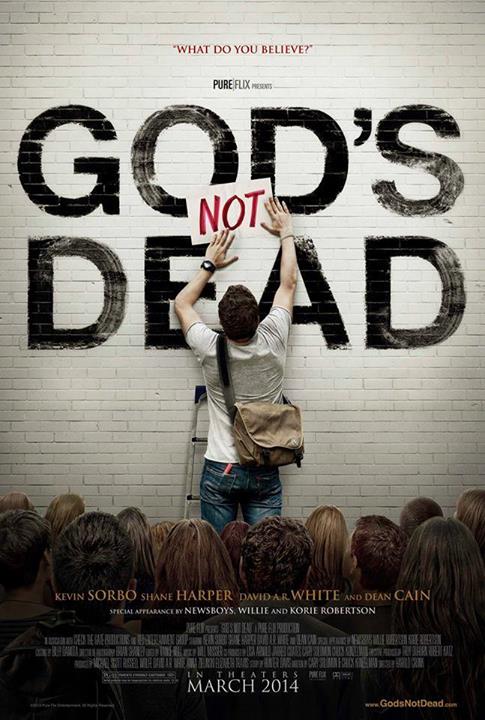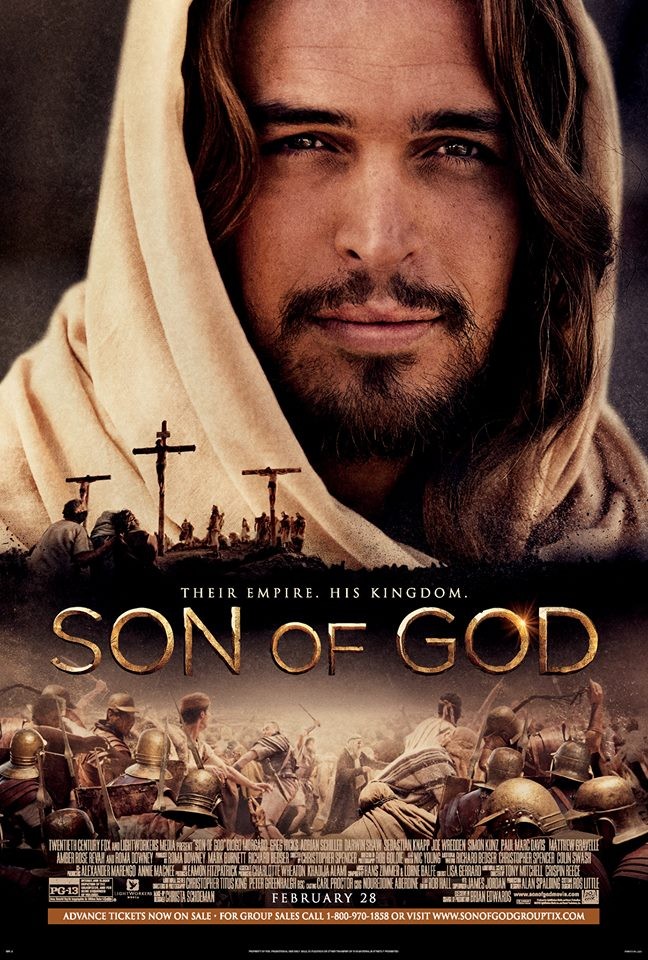A movie with the provocative title, “God’s Not Dead” opened in theatres over the weekend. Although I tend not to be an opening weekend kind of girl, I had been eagerly awaiting this film, ever since I saw the eye-opening trailer.
 The intriguing plot centers on a college student who finds his Christian faith challenged on the first day of his philosophy class by a professor with a Mt. Sinai-sized chip on his shoulder. A number of interweaving subplots demonstrate the drama of faith—both the callous rejection of it and the courageous embrace of it.
The intriguing plot centers on a college student who finds his Christian faith challenged on the first day of his philosophy class by a professor with a Mt. Sinai-sized chip on his shoulder. A number of interweaving subplots demonstrate the drama of faith—both the callous rejection of it and the courageous embrace of it.
While the story is fictitious, it is based on a number of fundamental truths about human nature, creation, and relationships. As the final credits indicate, the film was also inspired by real-life court cases, some of which involve college pro-life groups and the challenges they can face on campus.
And that got me to thinking. While pro-abortion groups sometimes use members of the clergy to sell their message about “reproductive rights,” there is something fundamentally atheistic about the whole business of legalized abortion.
For it denies the supremacy of the Creator in determining when life begins and when it ends. It cuts the Almighty out of the equation.
In one poignant scene of “God’s Not Dead,” a pastor helps a young woman to understand that she is not a mistake, because God doesn’t make mistakes. Yet, more than three thousand times a day, the abortion industry tells American women that their babies are mistakes, and therefore should be eliminated. Pro-abortion apologists attempt to shore up the argument by claiming that these undesirable children would have ended up committing crimes and otherwise wreaking havoc on society, as if they were programmed to cause trouble from the moment they appeared in the womb. On one hand, abortion advocates argue that life does not begin at conception, while on the other hand they claim they can know from the start that this baby should not be given a chance at life.
The film deftly points out that a public denial of the existence of God can mask a deep hurt stemming from a profound tragedy which occurs during the course of one’s life. The age-old question appears: How can an all-loving God permit evil? One might wonder, too, what emotional scars prompt a woman to seek abortion—or a doctor to turn to abortion to make a living. Read the book The Hand of God by the late Dr. Bernard Nathanson, NARAL’s founder, and you can catch a glimpse of the world of pain that can exist within an abortionist’s soul.
Nathanson went from being an atheistic abortion rights pioneer to a Christian pro-life advocate. His conversion to the pro-life stand preceded his religious conversion—he first began to see the humanity of an unborn child in an ultrasound before he was able to touch the face of God.
One can come to the conclusion that abortion is unjust purely through the force of reason. Indeed, there are atheists and agnostics who do recognize abortion to be the taking of an innocent human life.
But there is also a profound religious argument to be made in defense of the pro-life stand: Abortion is the ultimate rejection of God and His merciful love.




